Image description: A person’s fingers locked one into another is resting on a Bible with a black cover during service at Adonai Inclusive Ministries. On one of their wrists, there is a band with the Kenyan flag. They are dressed in a patterned shirt and blue jeans with their legs crossed over each other. Beside them is another person adorned with bands on their wrist wearing a ring dressed in a black outfit with a white motif.
Kampala, Uganda (Minority Africa) — It is a quiet Sunday morning in a Kampala suburb. From a distance, the distinct voices of people singing can be heard. As one draws closer to the origin of the song, it becomes more apparent, the emotions unmistakable, as a group of about two dozen people chorus in unison, “Let your living water flow over my soul. . .”.
At first glance, it looks like a usual church gathering. But the person seated by the entrance keeping watch and scanning the area around the hall, the suspicious gazes from the congregation whenever someone enters the room, and the rainbow-themed backdrop reveal a more profound truth.
This is no ordinary congregation. This gathering has been organized by Adonai Inclusive Christian Ministries, an LGBTQ+ affirming church in Uganda’s capital, Kampala. It is led by and welcomes gay people, a huge fraction of who struggle with reconciling their faith and sexuality.
When I arrive at the venue, I am met with skepticism. The person at the entrance nervously looks at me as if asking, “Who are you?”
My guide, also a member of the church, quickly notices their concern for safety and steps in, introducing me as a member of a media team there to cover the day’s proceedings.
“They are with us,” she says, in this context referring to an ally, putting their mind at ease.
Realizing that this moment might play out again with the rest of the group, my guide, a woman I would later find out is called Ruby, makes a formal announcement communicating our presence. I am there with a cameraperson and Minority Africa’s Sexual Minorities editor.
There is a man who is standing in front of the congregation, decked in a grey suit and smiling. He is Pastor Kagwa Ramathan Mutyaba, the founder of Adonai Inclusive Christian Ministries, and is more commonly known as Ram Gava.
“When you get baptized, you accept Jesus as your Lord and personal savior,” 26-year-old Gava says to the congregation during his sermon and referring to a baptism taking place later in the day.
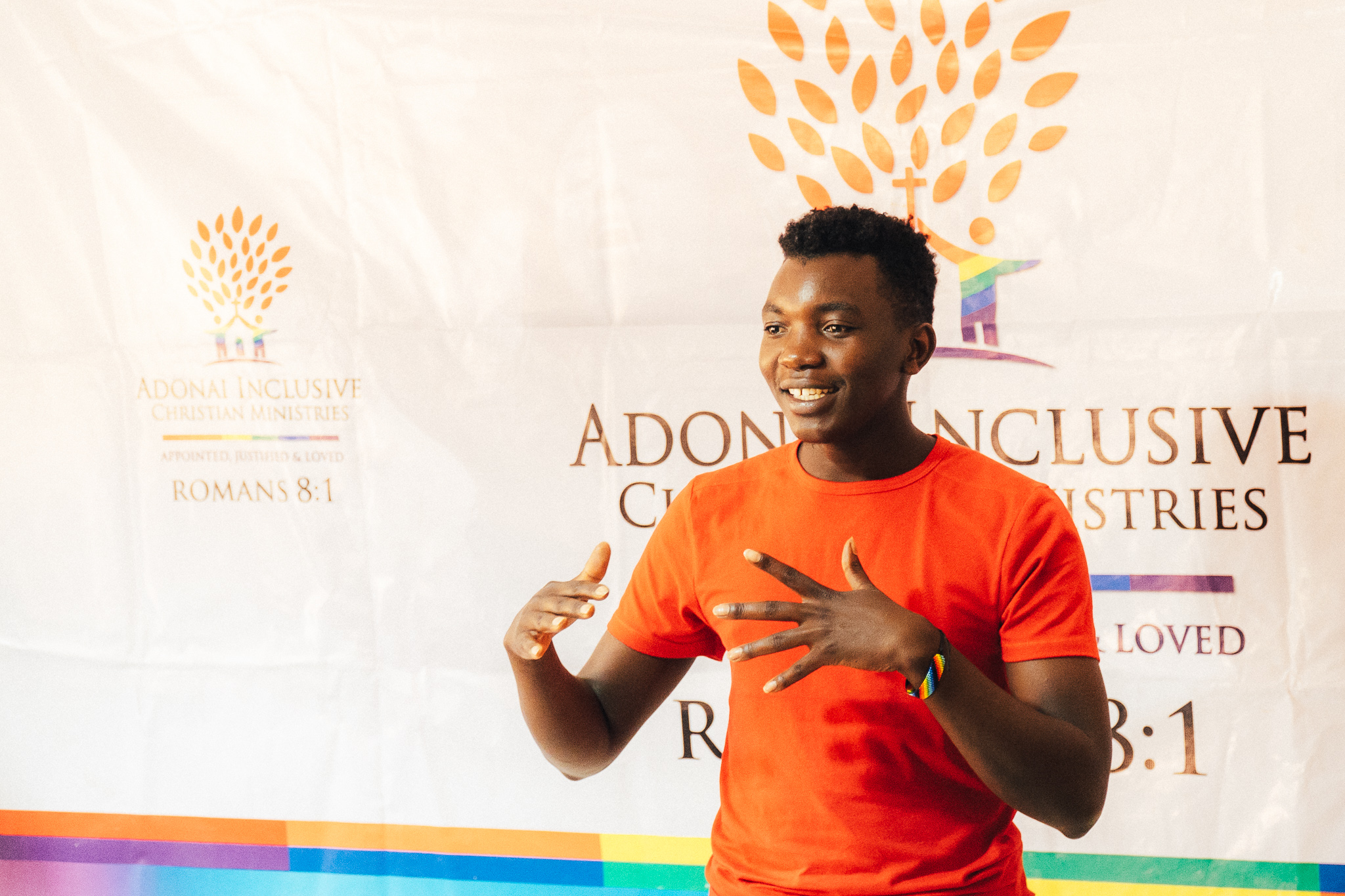
Before starting Adonai Inclusive Christian Ministries, Gava had served in mainstream churches in various capacities; however, he always faced rejection because he was “different.”
“What the pastors were preaching about people like me was hate; ‘people like you need to be killed, people like you need to be silenced’,” says Gava, who realized he was attracted to men at the age of sixteen.
In the congregation is Gabbie, a trans woman who was raised in the church but lost interest because of hostile attitudes towards her gender identity.
“I was this girly boy. People sometimes came to my father and they would tell him, ‘We do not understand your son, why is he girly?’” Gabbie who is a youth pastor at Adonai Inclusive Christian Ministries recalls. “Some people would think I’m going to spoil them,” she adds.
Her dilemma went beyond just concealing her identity from her church. Gabbie’s father is the pastor of the church she grew up in, and in such a setting, image is very important, so much so that until this interview, Gabbie had not officially come out to her family.
“There are some things you’re not supposed to do because you’re in the closet, you don’t want to create alarms around, you don’t want to become an issue of discussion around people,” 22-year-old Gabbie explains.
“You do things according to who you are with, you go through a situation and you cannot share with anyone,” she adds.
Despite this huddle, Gabbie always wanted to work in the church. She started actively serving in her father’s church around 2007 when she was seven until exhausted by the discrimination she experienced, she left the church in June 2021. Nearly two months later, she joined Adonai Inclusive Christian Ministries where she now serves as a choir leader and youth pastor.
“I came to this church because it is a bit far from home; it will be so hard for [my father] to find out which church I am in and what they do,” she says.
And it seems to have worked. “[Here] I am basically myself. No judgment,” Gabbie says with satisfaction present in her tone. “I have never been myself like the way I am here. Sometimes I feel like I want to crossdress and I openly come to church in my heels and my dress.”
“No one is going to judge you, actually people will be like, you are looking beautiful.”
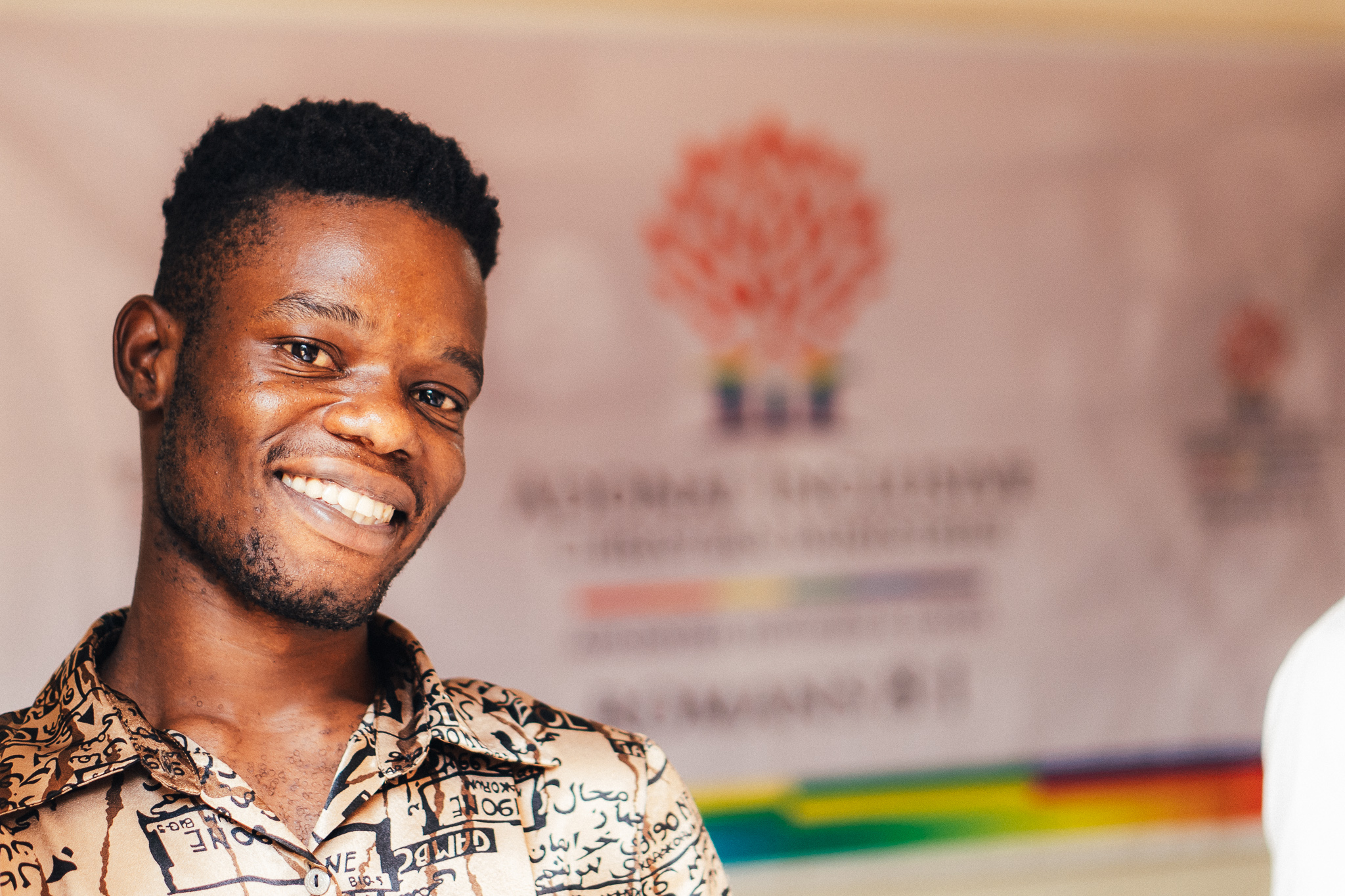
Uganda is a largely religious nation with Roman Catholics and Anglicans accounting for 39.3% and 32% respectively of the population. Homosexuality is illegal according to the laws of the country and it is also shunned by the different religious denominations.
When the anti-gay bill proposing the death penalty for homosexual activities was first introduced in 2009, and later signed into law in 2014, it was widely supported by the Catholic and Anglican churches who hailed the country’s leadership and joined protests decrying homosexuality as abnormal.
“The battle against homosexuality is not ours, but the Lord’s,” Anglican Archbishop Stanley Ntagali said during a gathering of Christian and Muslim leaders in 2014 to thank the president for signing the anti-homosexuality bill into law.
During the event, the Mufti of Uganda, Sheikh Shaban Ramadhan Mubajje described the new law as a ‘liberation of Ugandans.’
“Not from bad regimes, but from the wrath of the Almighty God the creator,” he said.
A little over a month earlier and two days after the bill was signed, Msgr. John Baptist Kauta, the secretary-general of the Uganda Episcopal Conference which is the assembly of the Catholic Hierarchy in Uganda said in an interview with the National Catholic Reporter, “Our reaction from the church is very clear, we don’t support homosexuality.
While Kauta said the country’s bishops had been against the harsh penalties involved for homosexual acts, he however added that they “believe (homosexuals) can change.”
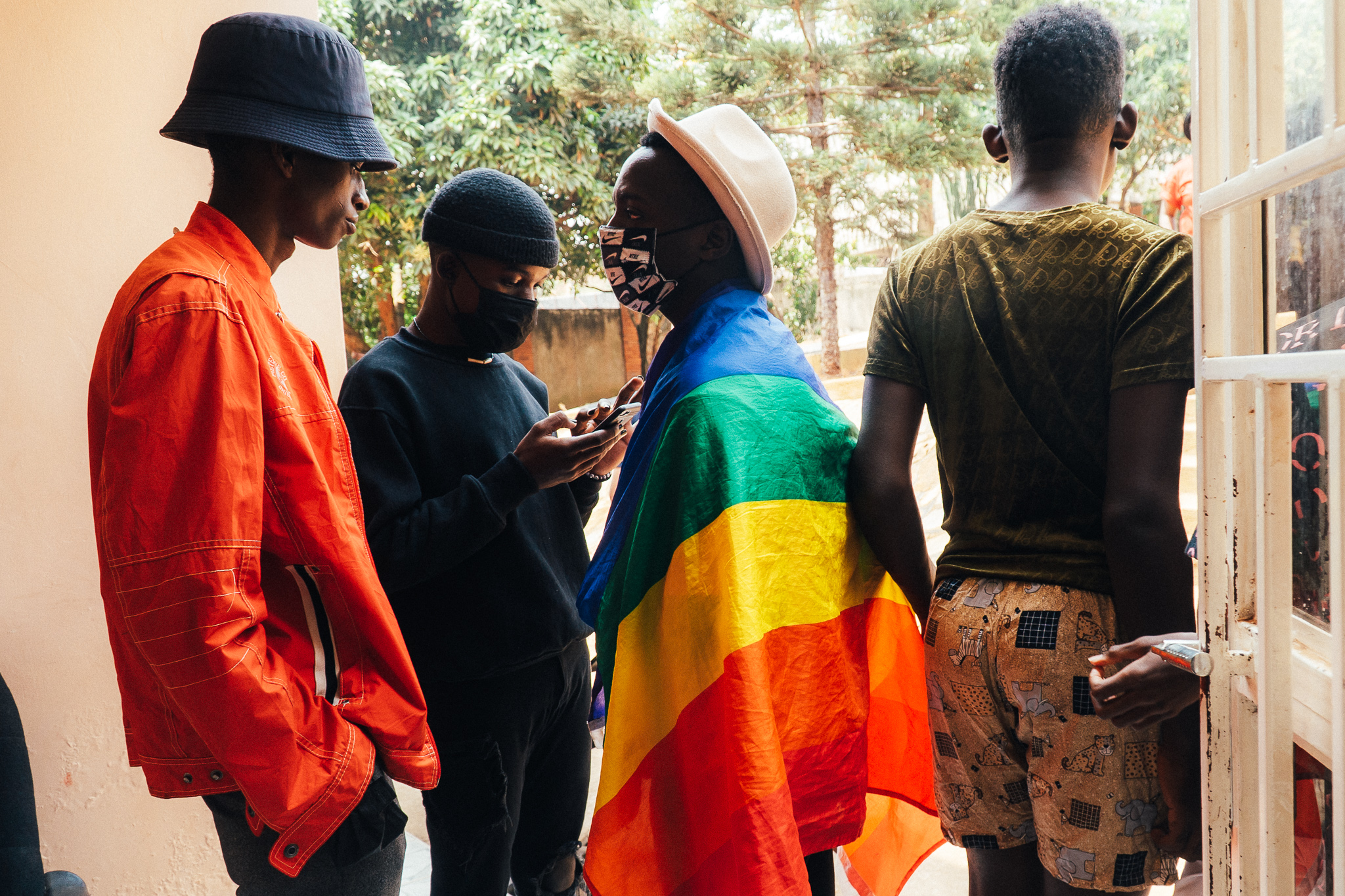
“Too often the homophobia that we see in churches is based on religious dogma, religious heretics, and religious homophobia,” says Reverend Jide Macaulay, an Anglican priest and the Founder of House Of Rainbow CIC, a fellowship for Black LGBTQI+ people in London.
He explains that doctrines excluding a group of people because of their sexuality stem from ignorance and lack of knowledge.
“A lot of pastors, priests, or theologians do not understand human sexuality, they need to learn about the cultural history of acceptance of human sexuality,” Reverend Macaulay says.
Having trained as a priest himself in the Church of England and ordained as a deacon in 2013, he advocates for commitment to inclusion when formulating and interpreting church doctrines as well as the need to create spaces of worship that are embracing.
“When churches say that all are welcome, they should practice that principle that all are truly welcome,” he adds.
Gava knows a disregard for this principle that Reverend Macaulay refers to firsthand.
When he was around twenty years old, a preacher in his then church delivered a sermon on homosexuality and how it displeased God. In search of healing, Gava went to the preacher at the end of the sermon and confessed his ‘sin.’
“I started going to a prayer mountain every Friday,” he says. “The more we prayed, the more this confirmed I belonged to the other community.”
This realization nonetheless did not deter Gava from seeking further healing and guidance from the preacher, a reaction that according to Reverend Macaulay is very common among LGBTQ+ people who have to navigate unsafe spaces.
“It is not that [gay people] are in denial or that they hate themselves,” he says. “The church and society have created a hostile environment to the point that people do not understand their ability to love themselves.”
Similarly, seeing no change, Gava returned to the preacher and told him he was still feeling the same way, still ‘gay.’
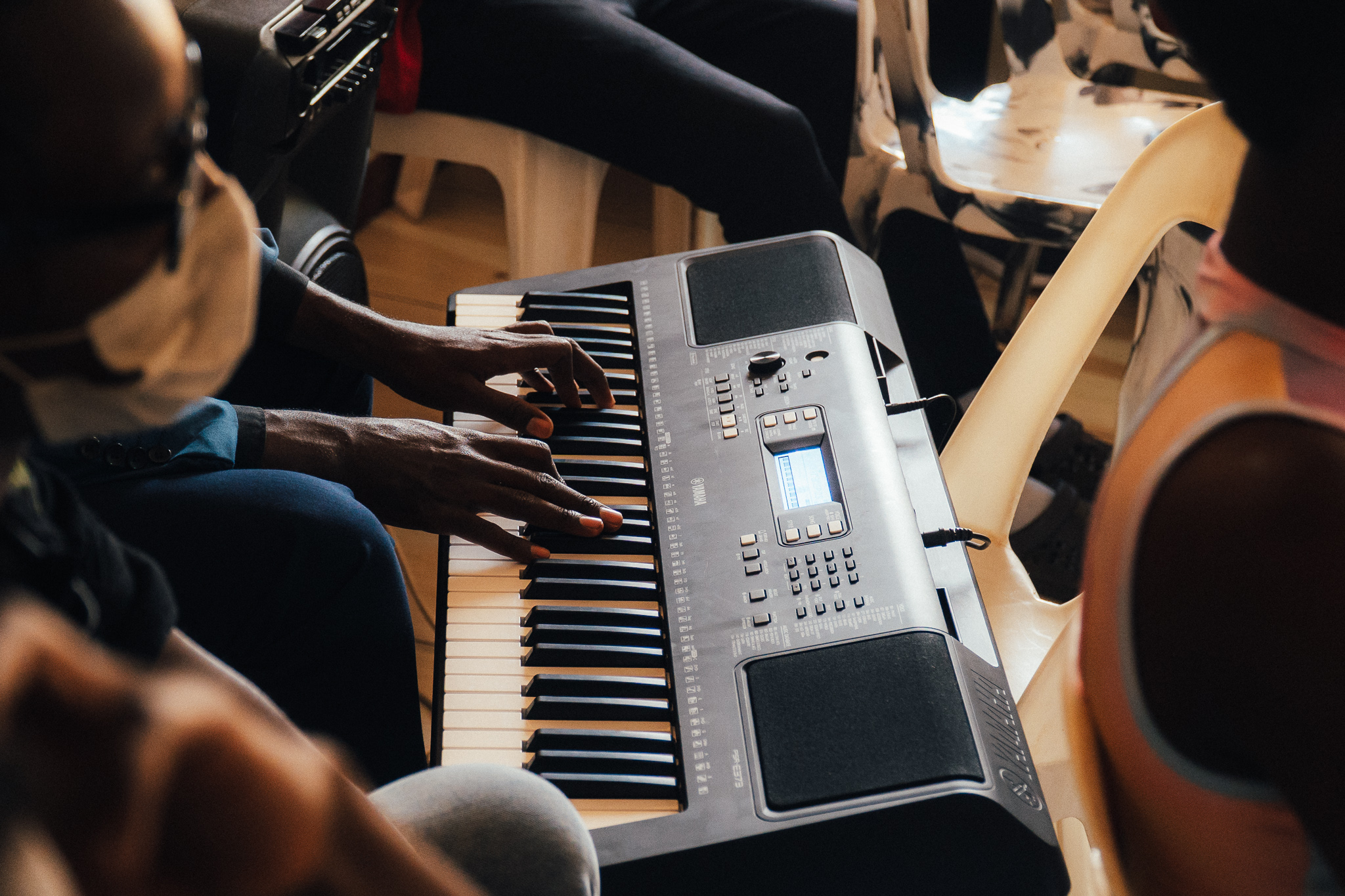
“I think he was tired so he went to the pulpit and then called me, ‘Young man, come here, raise your hands, I want to pray for you,’” Gava recalls. “The spirit of God is revealing it now that you are gay, and it is not Godly,’” the preacher went on.
After the sermon, Gava remembers being judged.
“No one wanted to hear me, no one wanted me to associate with their children, their sons.” “I was seen as a spoiled tomato in the basket,” he says.
The church, an institution that he had grown up in, one that meant a lot to him, had rejected him and he felt he had no reason to live. He notes this incident as when he first began to have suicidal thoughts.
“If the church cannot deal with me, if God cannot deliver me, then I have to die,” he says, explaining his thought process at the time and narrating the different ways he came up with to end his life.
One of those ways played out in Mbiko, in Jinja, a town in Eastern Uganda and just outside of Kampala, when he wanted to throw himself in front of a speeding truck along the highway.
“I could not, I had that fear that I could not surrender life just like that,” Gava says.
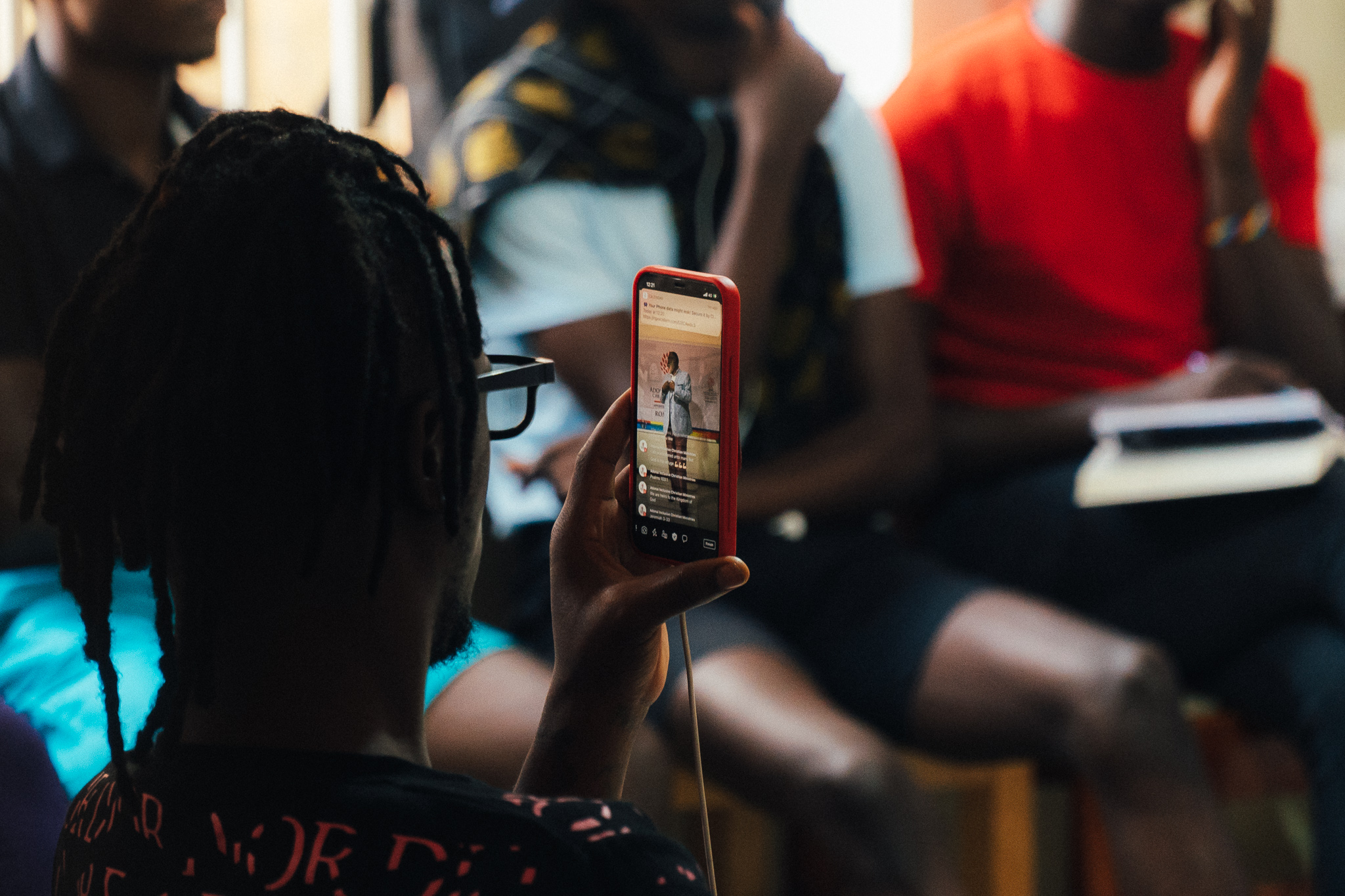
In 2019, after a series of suicide attempts, Gava came out on Facebook. In a post in which he announced his engagement to his then-boyfriend and also openly replied comments saying he was gay.
Although some of the responses were negative, his confession attracted support from other people in the LGBTQ community online.
“People started coming to me and telling me their experiences,” he says. “I thought I had the most terrible, ugliest of experiences, but I heard more touching, more painful, hurting stories.”
In 2019, after a series of suicide attempts, Gava came out on Facebook. In a post in which he announced his engagement to his then-boyfriend and also openly replied comments saying he was gay.
Although some of the responses were negative, his confession attracted support from other people in the LGBTQ community online.
“People started coming to me and telling me their experiences,” he says. “I thought I had the most terrible, ugliest of experiences, but I heard more touching, more painful, hurting stories.”
It was then that Gava decided to create an impact in the LGBTQ+ community. He reached out to some of the people who had shared their experiences with him and who were homeless and struggling because of their sexual identity and orientation, offering them his home.
This home was a single room rental and Gava barely had enough to support himself. He started living with 13 people, providing food, shelter, and all other basic requirements since they were unemployed.
As things got tougher, they turned to prayer.
“We started worshiping, started streaming on Facebook, people started fellowshipping and the church began,” he says.
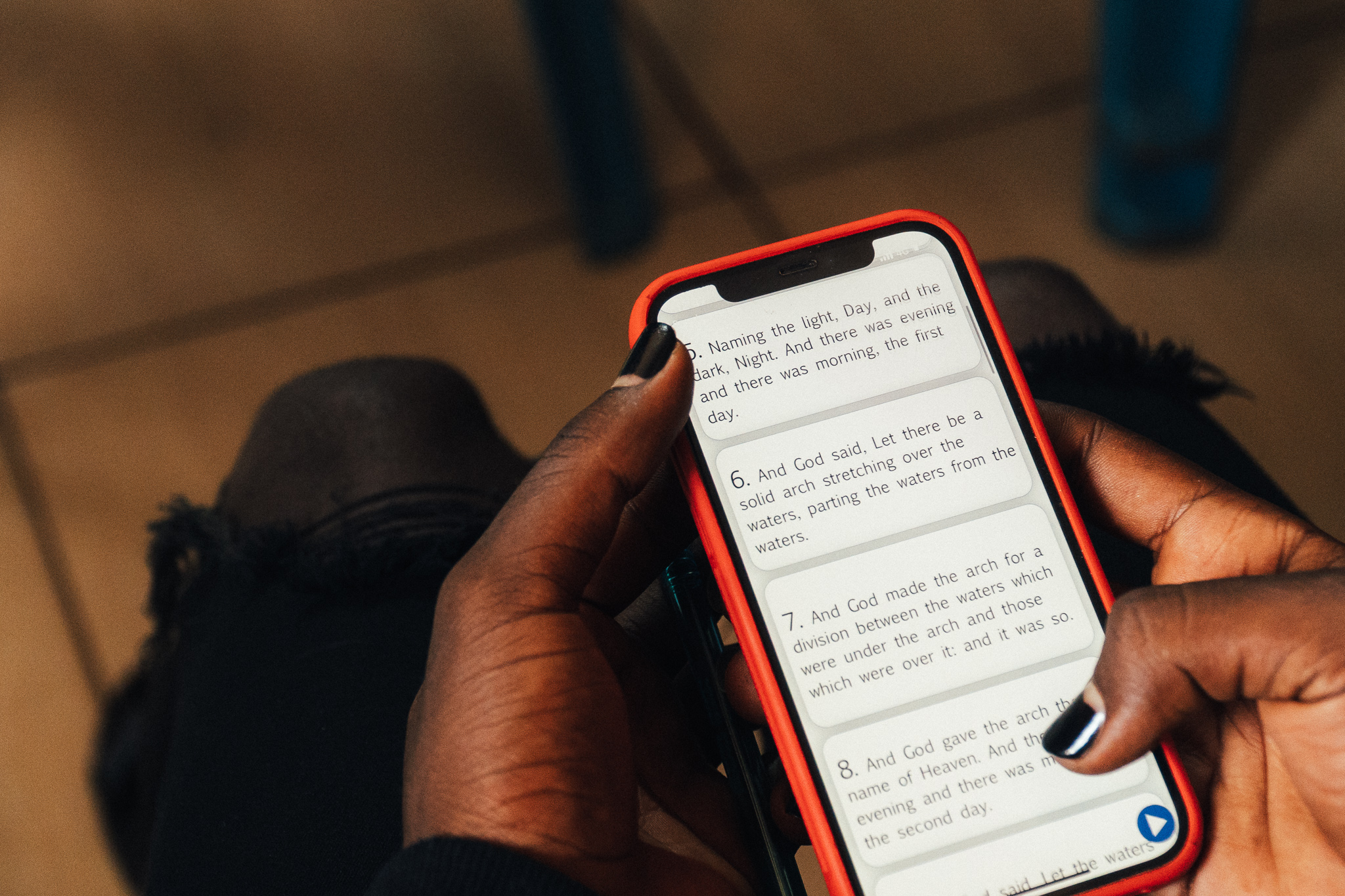
Today, Adonai Inclusive Christian Ministries has over 40 members who attend physical church services with many more attending virtually. The church also started Freedom House, an LGBTQ+ shelter in 2019, which has housed over 70 LGBTQ+ homeless persons since it opened its doors.
My guide Ruby is one of the 70 people who have lived in the shelter. When her family found out she was queer, she was thrown out. Now she serves as an apostle and coordinator at the church, a mandate she entirely believes in.
“When you are together in a place with people who understand you and who are just like you, there is some sense of [community], you realize you are not alone, you are never alone,” Ruby says.
On this day, she is also getting baptized. She wears a wide smile as she is dipped into the inflated pool. In October last year, Freedom House was raided by the police with several people arrested. Thankfully, no one was taken to jail.
“We cannot control how people think or perceive who we are,” Ruby says to the team later as she is being filmed for a video version of this story. “[Humans] get angry and scared of things we don’t understand.”
She adds, “For [LGBTQ+ people] who are not in safe spaces, please do not give back the anger that has been sent to you. It’s simply that people do not understand who you are.”
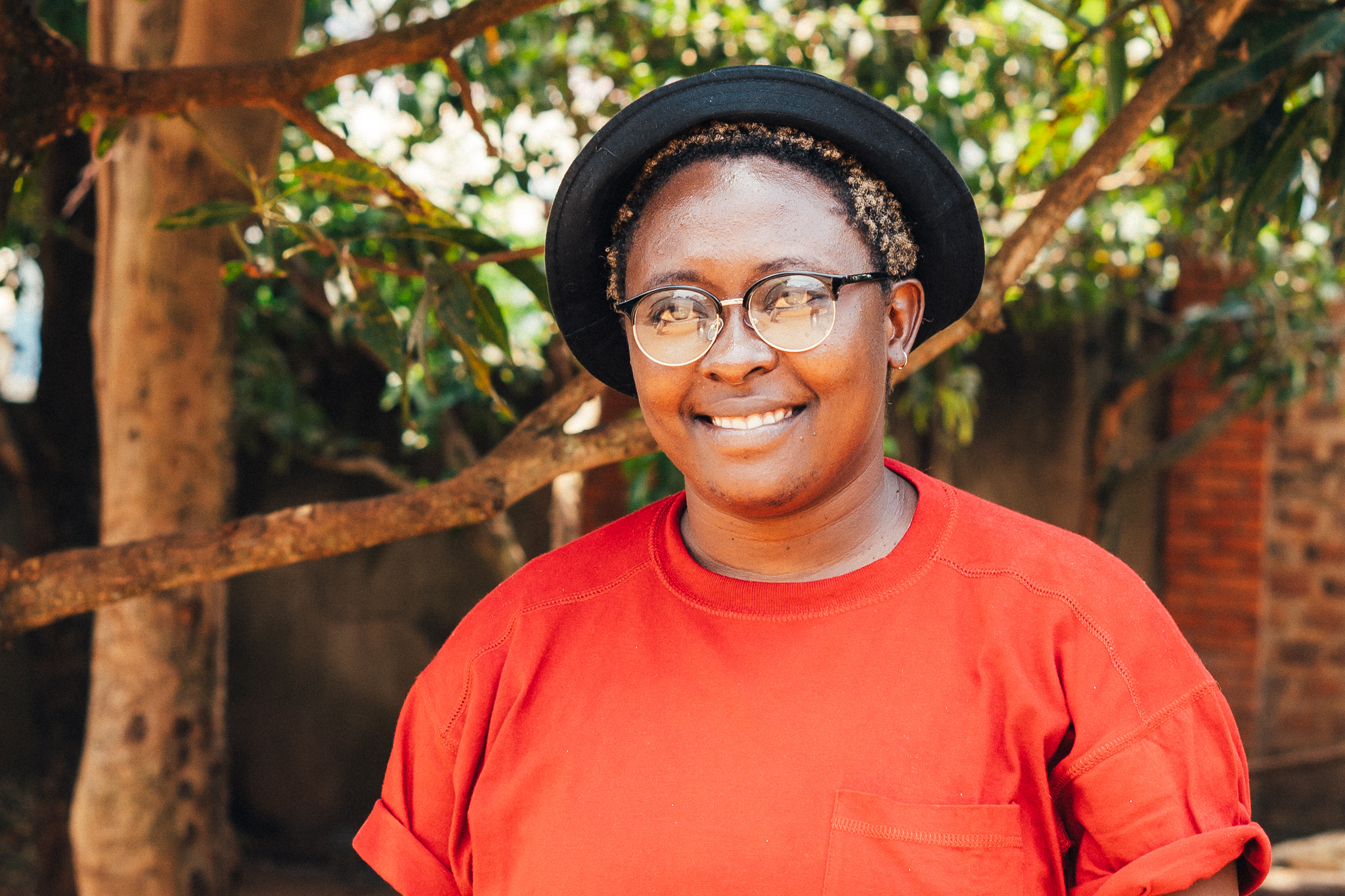
Yet, outside legal, cultural, and religious hurdles, Adonai Inclusive Christian Ministries has to tackle financial obstacles as well. In Uganda, the day-to-day running of places of worship survives largely on collections of their members and so correspondingly, the larger the church, the more funds it has.
Despite these challenges, the church continues to serve different members of the LGBTQ+ community in Uganda.
Gabbie, who joined Adonai Inclusive Christian Ministries because of how far the church was from her home, has gotten much more than she expected.
“[In] this [gathering], you get confidence, your self-esteem is boosted, and you start being yourself,” she says.
While Gabbie was not out to her family at the time of our first interview, especially her father, she would tell me later that an uncle contacted her when the video version got popular online.
But she knew. She had anticipated this on the day of our first interview and told us she was simply tired of hiding.
“I am ready to face him and tell him that this is me. I didn’t learn it from anywhere, no one spoilt me. This is me,” she says about her father.
“I know it will break him down,” she adds “But for how long am I going to hide this? For how long am I going to hide my identity?”



